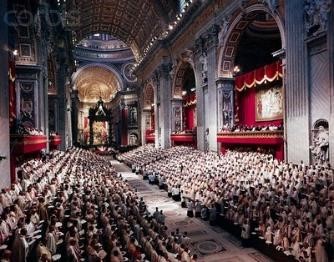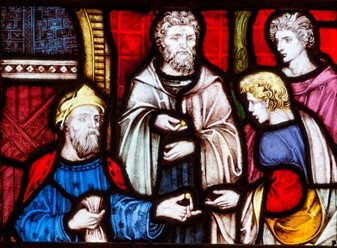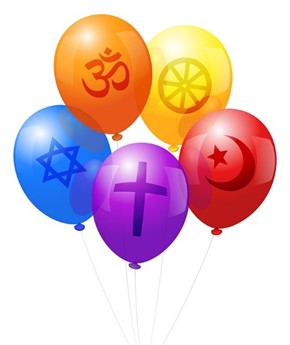- Ecumenical and Interfaith Council
- The Hunter Interfaith Network
- Hello Hunter Reference Group
- The Hunter Community Alliance
 Sixty years ago, as a Catholic, none of these conversations would have been possible. Amazingly, Pope John XXIII, on January 25, 1959 announced his intention to call an Ecumenical Council. For those familiar with the Second Vatican Council documents, you will be aware that within them is the Decree on Ecumenism (Unitatis Redintegratio – Restoration of Unity) and also Declaration on the Relationship of the Church to Non-Christian Religions (Nostra Aetate – In our time).
Sixty years ago, as a Catholic, none of these conversations would have been possible. Amazingly, Pope John XXIII, on January 25, 1959 announced his intention to call an Ecumenical Council. For those familiar with the Second Vatican Council documents, you will be aware that within them is the Decree on Ecumenism (Unitatis Redintegratio – Restoration of Unity) and also Declaration on the Relationship of the Church to Non-Christian Religions (Nostra Aetate – In our time).
Vatican II also told us in the document, Constitution of the Church in the Modern World (Gaudium et Spes – Joy and Hope) to read the signs of the times:
Inspired by no earthly ambition, the Church seeks but a solitary goal: to carry forward the work of Christ under the lead of the befriending Spirit…. To carry out such a task, the Church has always had the duty of scrutinizing the signs of the times.[1]
 As members of the Body of Christ, the Church, all of us, are called to read what is happening in our world, and such a complex world it is. We need to read the signs of the times politically, sociologically, culturally, economically, spiritually, and theologically. We read the signs of the times in the light of the Gospel. This is what we are being invited to do as part of the journey towards the Plenary Council and our Diocesan Synod.
As members of the Body of Christ, the Church, all of us, are called to read what is happening in our world, and such a complex world it is. We need to read the signs of the times politically, sociologically, culturally, economically, spiritually, and theologically. We read the signs of the times in the light of the Gospel. This is what we are being invited to do as part of the journey towards the Plenary Council and our Diocesan Synod.
As we heard in the Gospel reading on this Thirty-Third Sunday in Ordinary Time, we are called to use our gifts and talents to enrich our community and for building the Kingdom of God together in our time and place. On this Sunday, we also heard in the second reading from the first letter of St Paul to the Thessalonians (5:1-6)
But it is not as if you live in the dark, my friends, for that day to overtake you like a thief. No, you are all children of the light and of the day: we do not belong to the night or to darkness, so we should not go on sleeping, as everyone else does, but stay wide awake and sober.
Interestingly, of the ten the theological principles of the 1992/93 Diocesan Synod, two refer to signs of the times and ecumenism.
3.9 Read the Signs of the Times
To fulfil our mission in today's world and become a credible sign of God's love for all people, we must discover the signs of God's presence and purpose in our culture and in our world. Reading the signs of God for our time means being open to hear what the Spirit is saying to the Church through the hearts and minds of his people.
The joys and hopes, the griefs and anxieties of people of this age, especially those who are poor or in any way afflicted, these are the joys and hopes, griefs and anxieties of the followers of Christ. [2]
3.10 Concern for Ecumenism
In keeping with the Lord's own prayer that all his followers be one, we acknowledge the need to deepen our bonds with all our brothers and sisters in Christ.
The concern for restoring unity involves the whole Church, faithful and clergy alike. [3]
And one concerns the diversity of gifts:
3.5 Diversity of Gifts
Each community must seek out, recognise, and utilise the diversity of gifts, experience, knowledge, and competence amongst its members. It is better that many people be involved, using their particular talents and abilities, than that a few try to do everything.
Allotting his gifts to everyone according as he wills (1 Cor 12:11). God distributes special graces among the faithful of every rank. By these gifts he makes them fit and ready to undertake the various tasks or offices advantageous to the upbuilding of the Church ... These gifts are to be received with thanksgiving.[4]
The Second Vatican Council blew the winds of change and we are still trying to make real the intentions of that Council with its Constitutions, Decrees and Declarations.
In our Ecumenical and Interfaith Council meetings, during the year, due to COVID – 19, we have taken the time to explore Receptive Ecumenism. The essential principle behind Receptive Ecumenism is that the primary ecumenical responsibility is to ask not "What do the other traditions first need to learn from us?" but "What do we need to learn from them?" The assumption is that if all were asking this question seriously and acting upon it then all would be moving in ways that would both deepen our authentic respective identities and draw us into more intimate relationship.
During our conversations we also referred to this principle in our dialogue with the other major Abrahamic faith traditions – Judaism and Islam, as well as with other world religions such as Hinduism and Buddhism. Over many years, the Diocese of Maitland-Newcastle has been developing relationships both ecumenically and in the area of interfaith. We seek to celebrate our commonalities and to not focus on our differences. We respect the otherness of the other through dialogue so as to build trust. I believe we are transforming relationships, building integrity, respect and unity in our diversity. In our gatherings and conversations, we share community, fellowship and mutual respect. It is our faith that is building bridges of harmony, not discord and division.
The primary purpose of the Hunter Community Alliance is to build relationships which builds strength within and between member organisations, so that issues are identified for public action. Together our horizons are broadened, and our common humanity is embraced.
In all the meetings I participated in last week, the invitation continues to be, to move beyond tribalism, so as to contribute to civil society. In the encyclical, Fratelli Tutti, Pope Francis calls us to focus on our common humanity and our common home as a way to co-operate with God and each other on our pathway to peace. It calls us to a new culture of social friendship and dialogue. I am privileged to be meeting people in these many spaces whose desire it is to make a difference, because we share a common humanity and a common home.
We are called to solidarity, encounter and gratuitousness so as to create an open world and an open heart.
Next week we celebrate the last Sunday of our Liturgical Year – The Feast of Christ the King which leads us into Advent. What a year it has been!
[1] Gaudium et Spes, #3-4, Pastoral Constitution on the Church in the Modern World, Second Vatican Council
[2] Gaudium et Spes, Pastoral Constitution on the Church in the Modern World, Second Vatican Council
[3] Unitatis redintegratio, Decree on Ecumenism, Second Vatican Council
[4] Lumen Gentium, 12, Dogmatic Constitution on the Church, Second Vatican Council